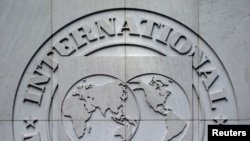IMF mission chief Stephane Roudet told reporters in Accra, IMF board approval would come after Ghana's creditors give assurances and the debt exchange program showed progress.
Debt payments currently take more than half of government revenues. A 50 percent slide in the cedi against the dollar has also increased Ghana's debt values by $6 billion this year.
The West Africa state is facing more than 40 percent inflation, growing debt and a sharp decline in its cedi currency since the start of the year.
Major credit ratings agencies have downgraded their outlook on Ghana, reflecting market worries that the country risked missing debt payments.
The IMF negotiations came after a new tax on the electronic transactions, known as the E-levy, faced resistence and failed to generate expected revenue levels for the government.
The crisis forced President Nana Akufo-Addo's government to reverse its position earlier this year and seek IMF help as economists warned the country risked a default on its debt payments.
The government has already announced a domestic debt swap as part of the program to ease a crunch in payments and is soon expected to release details about restructuring its foreign debt.
The government has already increased VAT by 2.5 percent and frozen public worker hiring to help trim costs and increase domestic revenues.
Officials say vulnerable groups will be protected, but critics are concerned the government program will lead to more austerity as it cuts spending.
"Ghana having reached a staff level deal with the IMF is quite good news, although we have yet to get the full details but on the whole, it will facilitate the final approval," Ghanaian economist Daniel Anim Amarteye said.




